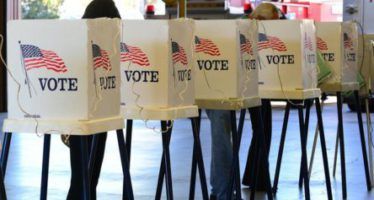Yee targets higher-ed non-profits
JUNE 21, 2010
By LAURA SUCHESKI
Lawmakers rarely take up CalWatchdog’s mission to shed light on waste, fraud, and abuse in government. But on June 16, the Assembly Governmental Organization Committee approved SB 330, sponsored by Senator Leland Yee, D-San Francisco, to require public higher education nonprofits to disclose expenditures.
“These bills are imperative in order to rid the University of California and the California State University of waste, fraud, and abuse,” said Yee in a press release. “Taxpayers and students deserve to know how their public universities are run.”
Ordinarily, the foundations’ non-profit 501(c)3 status allow them to keep their bookkeeping private. Public universities maintain a significant number of foundations and auxiliaries, including those for campus bookstores, dining facilities, and housing developments. These foundations are staffed by university employees. “According to the CSU Chancellor’s Office, 20 percent of its $6.7 billion budget, or $1.34 billion, is held in their 87 auxiliaries and foundations, and out of public view,” stated the release from Yee’s office.
The California Faculty Association is among supporters of the bill. In some controversial instances, donors have pressured school administrations to make changes to academic programs. In 2009, for example, Cal Poly at San Luis Obispo changed a scheduled speech from agribusiness foe Michael Pollan at the behest of the chairman of Harris Ranch Beef Co., a major donor to the university’s charitable foundation.
Opponents worry that subjecting these state-funded “private” non-profits to the CPFA will only discourage donors from making contributions. Last year Governor Arnold Schwarzenegger vetoed a similar bill, SB 218, also sponsored by Yee. His veto letter expressed concerns that removing donor privacy could lead to fewer donations, crucial to school funding during the budget crisis.
“While I am a firm believer in providing openness and transparency when it involves public entities and public funding, this bill inappropriately defines private auxiliary organizations as a state or local public agency for purposes of the California Public Records Act (CPRA),” wrote Schwarzenegger. “Subjecting the altruistic activities of private donors and volunteers to the CPRA will have a chilling effect on their support and service, if they believe their personal privacy could be compromised. Hindering private giving ahead of time and resources becomes a detriment to our higher education institutions.”
The University of California is also against the bill. They fear that making donations public will send donors looking for other organizations to benefit from their largess. Although SB 330 differs from SB 218 by including protections for anonymous donors, the protections have been described as “vague.”
Anonymous donors information can become public if the donor received anything worth $500 or more for his donation, if, as the bill states, the donor “is a member of the governing board of an entity,” or if a donor “engages in direct communication for the purpose of influencing the administrative or academic action within the California Community Colleges, the California State University, or the University of California.”
Additionally, UC Berkeley Chancellor Robert J. Birgeneau contends in a June 3 letter to the chair of the Assembly Governmental Organization Committee that “the bill would not… apply to charitable organizations that support state agencies other than higher education.” What’s more, UCs, CSUs, and California Community Colleges are not the only government group shifting operations to nonprofits. Cities, counties and the state sometimes choose to provide government health or welfare services by heavily dispersing publicly-funded grants to non-profits, sometimes of their own creation.
Government groups have opposed similar bills in the past. The City of San Francisco, part of Yee’s home district, “ran over $1.5 billion in funding to and through 835 nonprofits during a period of a couple years,” wrote Rick Cohen in The Nonprofit Quarterly. “Activists pushed [for a Sunshine Ordinance] because of the purported secrecy of local AIDS nonprofits.” Later the City’s Board of Supervisors rejected a measure that would have given the government a say in determining publicly-funded nonprofit CEO salaries.
“If you want transparency to follow the money in the public sector, then the path of sunshine might lead to publicly funded nonprofits with demands that they disclose more than they typically do under typical state and federal regulations,” Cohen wrote.
Related Articles
Arnold Was The Machiavellian Governor
JAN. 5, 2011 By WAYNE LUSVARDI The media commentariat have tried to compare new California Gov. Jerry Brown with outgoing
Officials wrestle with ways to boost California’s voter turnout
SACRAMENTO – Does California have a voter turnout problem? The state’s voter-turnout rates hit the skids in the 2014 election
Obscuring Truth About Prop. 23's Backers
NOV. 18, 2010 In the Sacramento Bee Sunday Nov. 14, there were five different stories about climate change, including stories



